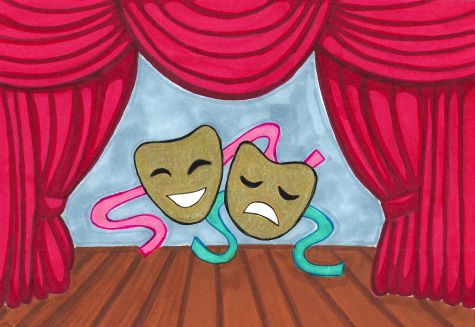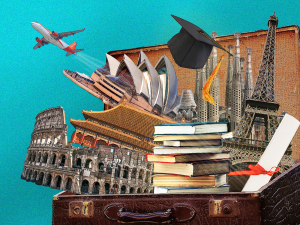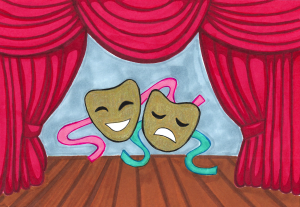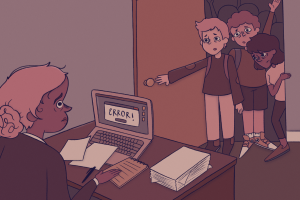Studying abroad changed my life
April 12, 2023
Editor’s note: This column was submitted by a member of the UT community.
The fresh mist, crisp air and sound of waves stripped all previous memories from my mind. Sans all my brain fog, I fully emerged in the beauty of the sapphire blue waters crashing against the centuries-old rocks that form the Cape of Good Hope.
Just four years prior, I roamed the vast deserts of Egypt atop a camel. The sweltering heat forcing sweat to penetrate my clothing as I stood amongst one of the world’s most ancient architectural structures. I will never forget the insurmountable feeling of my feet sinking into the pillow-soft sand that lies beneath the Great Pyramids of Giza.
The possibility of basking in the environment of the world’s most wondrous landscapes only stems from experiences abroad. Pictures don’t provide the enrapturing experience of viewing vibrant colors, hearing original sounds, smelling foreign scents, tasting authentic flavors and feeling new textures.
Furthermore, the true expansion of cultural knowledge only comes from human interaction. Books may explain the values and habits of a particular culture, but only real life exchanges develop cultural competence.
The professors leading my May Term in Cape Town, South Africa, prepared the class by assigning the readings, “Long Walk to Freedom” by Nelson Mandela and “Born a Crime” by Trevor Noah. These narratives taught about the gruesome history of apartheid in South Africa. Though the books helped provide context, my physical presence in the country set me in the midst of the issue.
I saw the white population live lavishly, while their counterparts worked low-paying service jobs and endured poor housing conditions. Despite their marginalization by the government, Black communities and communities of color maintain unity by forming self-sustaining neighborhoods and hosting local events. Dancing with everyone while locals performed cultural rhythms and shared home cooked, traditional meals sparked a new hope for a more equitable future.
Studying abroad also enhanced my relationships with peers. Traveling allows for deeper connections to be made because of the vulnerable circumstances that shape experiences. Many of the students in my cohort dealt with culture shock and homesickness, but we were able to open up and support each other through it all. Six months later, I still remain close friends with many of the people from the trip.
I encourage every student at UT to study abroad to learn more about themselves and the world, simultaneously. The enriching encounters faced internationally last forever and boost development in all areas of life.
Palmer is a journalism junior from Houston, Texas.












